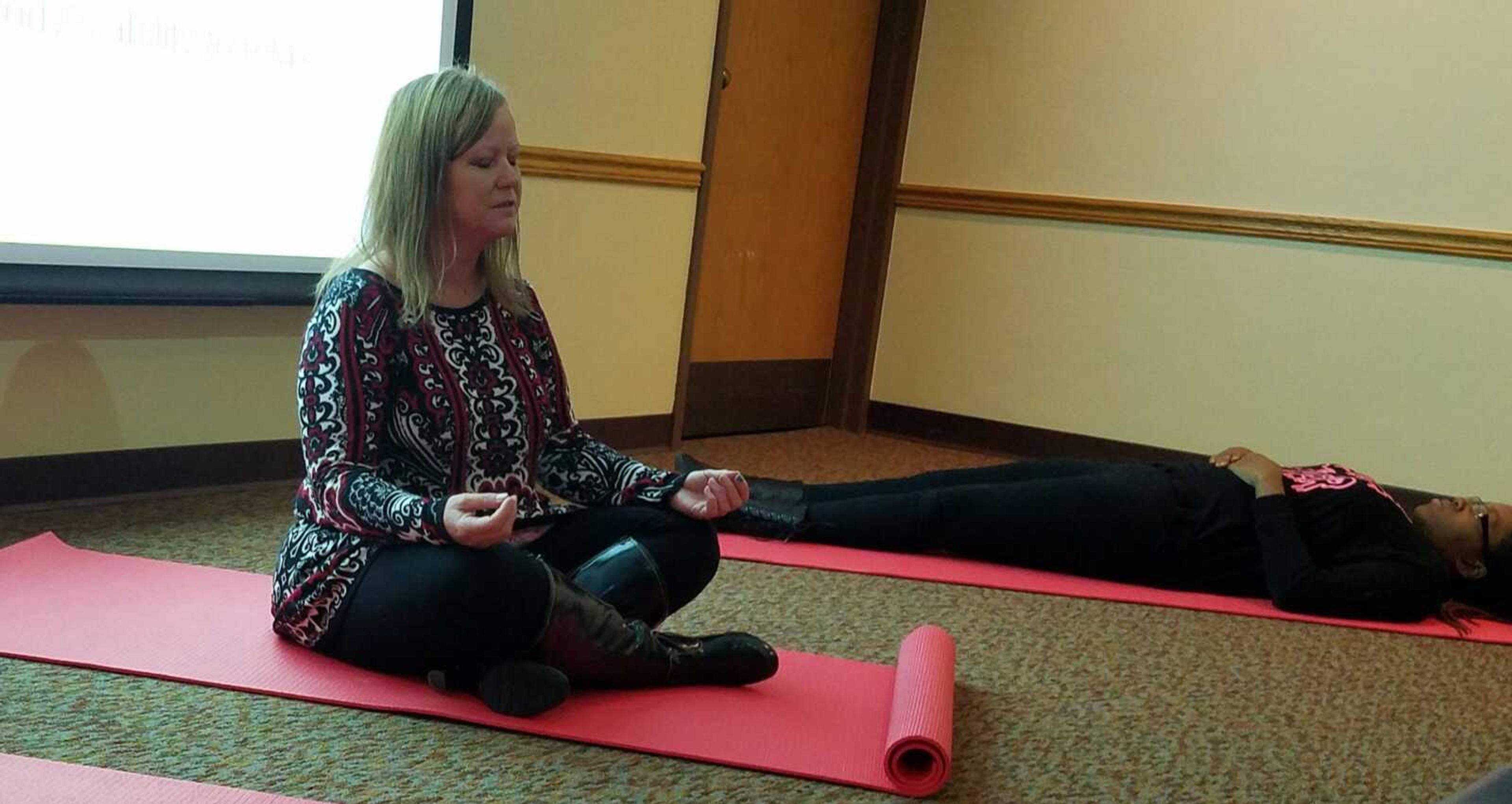Students learn about the important of handling stress
Southeast Missouri State University students gathered in the Heritage Room at the University Center on Nov. 9 for “Preserving Your Mental Health,” an event intended to teach students about mental health and methods to cope with stress. Rashaun Henry, tutorial coordinator for Student Support Services, set up the event to help students learn stress relieving techniques ahead of final exams...
Southeast Missouri State University students gathered in the Heritage Room at the University Center on Nov. 9 for “Preserving Your Mental Health,” an event intended to teach students about mental health and methods to cope with stress.
Rashaun Henry, tutorial coordinator for Student Support Services, set up the event to help students learn stress relieving techniques ahead of final exams.
“One of the key things I see with a lot of our students is they can study effectively, but sometimes the stress of the exams pushes information out,” Henry said. “No matter if it’s school or an organization, this can help them relax as they head into the final stretch.”
Donna St. Sauver, Campus Violence Prevention Program coordinator, led the discussion among 12 students, aided by soothing background music and a PowerPoint presentation.
“Research from a year ago showed that students are more stressed than ever,” St. Sauver began. “I probably don’t need to tell you all that, you feel that and you’re in that place. Of course, we’ve all been struggling through the election, so I would say our stress levels are really high today.”
St. Sauver described stress as being positive or negative, asking for volunteers to describe their reactions to stress. She correlated the students’ reactions to the biological processes occurring within the body when stress occurs.
“The adrenaline and cortisol we experience when we are faced with stress are really important,” St. Sauver said. “That’s what is generally causing what we’re feeling. The adrenaline can pump you up and get you ready for the task at hand. Cortisol, on the other hand, not so much. It can be detrimental to our bodies.”
Transitioning from discussing effects on the body to the mental effects, St. Sauver explained how stress can contribute to difficulties sleeping, loss of appetite and engagement in “more risky sexual behaviors.”
St. Sauver shared a quote from psychologist and philosopher William James: “The greatest weapon against stress is our ability to choose one thought over another.”
“Balancing that with the idea that a thought is just a thought, not reality and not defining, helps us gain control over our thoughts and do cognitive restructuring to control our thoughts,” St. Sauver said.
Asking for hands to be raised, St. Sauver polled students on the average hours of sleep they receive each night. One student’s hand was raised for eight hours, while others were raised for six and seven.
St. Sauver said “sleep hygiene” is an important aspect of managing stress, and there are different factors to consider when trying to sleep effectively, such as small lights throughout a room.
“Blue light from our phones and computers disrupts our circadian rhythms and is not good for sleep,” St. Sauver said. “Ideally, give up the blue light an hour before going to bed; make it dark. Set aside time to sleep, it’s really important to your mental health.”
Mindfulness, a method to create positive neural paths in the brain, and cognitive restructuring was the focus for the last portion of St. Sauver’s presentation.
St. Sauver said according to various studies, mindfulness can affect self-esteem and joy.
“We’re finding out our brain gets in ruts — negative ways of thinking our brain does over and over again,” St. Sauver said. “The good news is we can change that. Mindfulness literally changes our brain, which is why we see a decrease in anxiety and depression and an increase in joy and self-esteem.”
St. Sauver proceeded to lead students in breathing exercises, laying out mats for students to lay on. Aided by music, she guided students step by step through the process while giving positive reinforcement.
“Your body can learn to relax on command,” St. Sauver said. “The more you practice the exercises, the more effective they will be.”
St. Sauver added that a mindfulness group meets at 4 p.m. every Monday in the Heritage Room and 4 p.m. every Wednesday at the Student Recreation Center.







